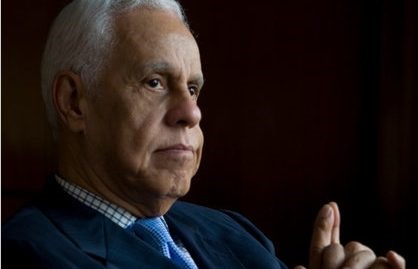When those who wish to lead express a lack of knowledge formulating change, it is incumbent to inform them of the history thereof.
My former Secretary of Education, James E. Dyke, shared with me a campaign ad he received from Del. Jennifer Carroll-Foy, a candidate for the Democratic nomination for Governor in next year’s election.
It was entitled “R. B. G. & Me”.
In it, Carroll-Foy celebrates the fact that because Justice Ginsburg wrote the opinion of the U. S. Supreme Court in a 7-1 decision in 1996, she was responsible for the change to admit women to Virginia Military Institute (VMI). She identified Justice Ginsburg as the reason she was able to attend VMI.
My greatest commendation to Justice Ginsburg, whom I admire and am pleased to have met, and I know she has no such predilection.
I was shocked, for several reasons. I was told that Ms. Carroll-Foy is also a lawyer; she should know that cases don’t start in court, especially the U.S. Supreme Court.
The fight to admit women did not begin in 1996, but years earlier. The school has a long history dating back to 1839 and is a highly-selective, public, four-year, undergraduate military college located in Lexington, Virginia. The U.S. Justice Department wrote us demanding that VMI abandon its male-only admissions policy.
Jim Dyke was one of the most effective and dependable members of my cabinet and advisors. We discussed the request and were in agreement and persisted in seeking compliance with the Justice Department’s position.
Virginia Attorney General, Mary Sue Terry, sided against us. She decided to represent the VMI position, via the VMI Foundation.
VMI was represented by a prominent Richmond law firm. The VMI Foundation was represented by Griffin Bell, former U.S. Attorney under President Carter.
Dyke’s wife, Ellen, was a partner in a law firm with Benjamin Civeletti. He had been Deputy Attorney General and moved to Attorney General upon Bell’s departure.
Through her efforts, we were able to retain his services for our position of ending gender discrimination.
At that time, I argued that the choice was a moral, as well as a legal one, I acknowledged that the decision as to “[w]hether VMI’s present admission policy [was] discriminatory must be made by the court,” but added, “[h]ad I to make the determination for the court, I would admit women.”
We won the case in the District Court, but lost on appeal in the Fourth Circuit, thus the appeal to the Supreme Court, where, as aforesaid, the case was affirmed.
Such legislative history is paramount to an understanding of how laws and policies came to be and the significant work that is required by those who want to enact change. This is yet another reason why access to the records of my administration and others is preserved by law.
As a lawyer, legislator, and now candidate for Governor, how can you purport to know how to bring about positive change when you are clueless about how change came about for your self proclaimed fulfillment?
I would say to that candidate, “Physician heal thyself”.
Stay tuned.








